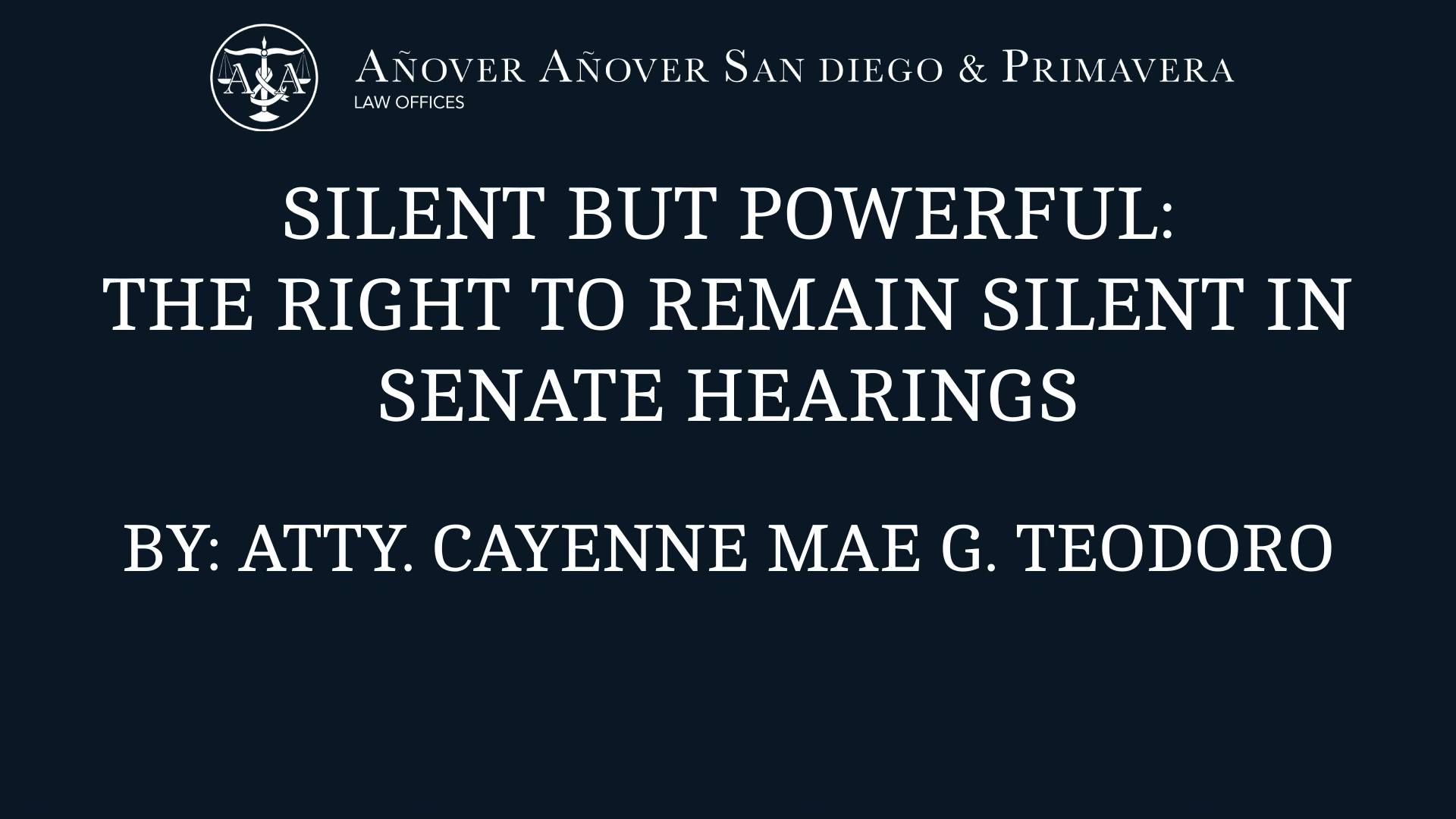Senate hearings in the Philippines have become front-page events, streamed live and dissected on social media in recent weeks. As lawmakers question witnesses under oath, one important constitutional safeguard is often forgotten -- the right to remain silent. Far from being a mere legal technicality, this right, firmly rooted in our Constitution, remains an essential protection in today’s highly politicized environment.
The cornerstone of this right is Article III, Section 17 of the 1987 Constitution, which provides: “No person shall be compelled to be a witness against himself.” Commonly known as the right against self-incrimination, this provision ensures that an individual cannot be forced, under threat of penalty, to give testimony that may expose him to criminal liability.
This protection is not solely confined to courtrooms. The Supreme Court in Bengzon Jr. v. Senate Blue Ribbon Committee (G.R. No. 89914, 20 November 1991) reiterated that “a congressional committee’s right to inquire is subject to all relevant limitations placed by the Constitution on governmental action, including the relevant limitations of the Bill of Rights.” Thus, while Congress wields the power of inquiry in aid of legislation, such power is never absolute.
Similarly, in Standard Chartered Bank v. Senate (G.R. No. 167173, 27 December 2007), the Court held that right against self-incrimination may be invoked in all legally sanctioned proceedings, including cases where a witness, whether a party or not, may face penalties. This further proves that the right to remain silent fully extends to legislative inquiries.
Despite this, a recurring issue nowadays is the misconception that invoking the right to remain silent is tantamount to admitting guilt. Again, this is a misconception. History has shown that compelled testimony, particularly in politically charged inquiries, often exposes individuals to not just criminal prosecution but also to reputational harm and trial by publicity. Silence, therefore, is not guilt; it is protection.
Thus, the right to remain silent is not just a personal privilege. It also prevents legislative inquiries from turning into witch hunts and guards against the abuse of state power. In today’s age of livestreams and viral soundbites, invoking this right is not an escape -- it is protection from abuse and unfair judgment.

